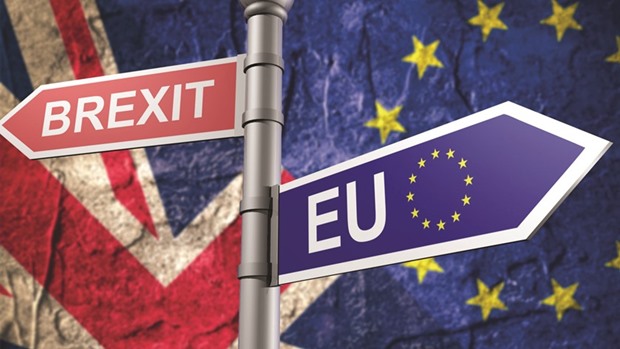In 2016, the United Kingdom made the momentous decision to leave the European Union, Donald Trump was elected president of the United States, and many European countries continued to struggle with internal challenges. The EU feels less stable than at any point in my lifetime.
There are common forces that brought us to this dangerous place, and it is more important than ever that the developed democracies come together to address them. Sadly, the opposite is happening. Just when the West needs alignment among the US, the UK, and the EU, national politics are pulling it apart.
Within Europe, there are three major challenges. The first is Brexit, the biggest event in British politics in a generation. Many think that withdrawal from the EU is a mistake; but it is what more than half of those who voted decided, so now we have to implement it. It won’t be easy. Translating the vote into policy will be like defusing a bomb: determining which wires to cut will require great care.
If Prime Minister Theresa May’s government focuses on what really matters in the upcoming negotiations with the EU, we can be guardedly optimistic that it will return with a good deal. Europe has a clear economic interest in keeping the UK close, and it needs the UK’s diplomatic, military, and intelligence capabilities. The UK also has a strong relationship with the US, and will remain an important part of the transatlantic security axis.
Meanwhile, we Britons should acknowledge that many EU laws and regulations have become our own, and that we share many common goals and joint programmes. We need not change all of these, nor should we discount the value of having access to the EU single market. Europe is the largest economic bloc in the world by some measures, and it is a significant source of investment in the UK.
The distinction between a “hard” or “soft” Brexit misses the point. The negotiations will be so complex that certain outcomes are bound to be soft, while others will be hard. The UK may be able to pay a price for access to the single market, “passporting” for financial services, or control over immigration from the EU.
The second big challenge within Europe is weak economic growth and competitiveness. Growth in European economies is lower than in the US and most Asian countries, energy costs are twice those of the US, and labour costs are twice those of Asia. EU countries urgently need to deregulate their markets and make their industries more competitive, which the UK has long advocated.
The third challenge for Europe is social inequality. A quarter of young people in Spain, Portugal, and Greece are unemployed, and many people sense that the rewards of prosperity are not being fairly distributed. While globalisation has been good for the world overall, it has left many people behind. These people are now making their voices heard at the ballot box, and we need to listen to them, and respond to their concerns.
Indeed, social inequality is even worse in the US than in Europe. Many Rust Belt households’ incomes haven’t risen for 30 years, and many of those households helped elect a president who has promised to turn the country inward.
The US must avoid this temptation. A dangerous world needs an actively engaged America, one that maintains security, defence, and intelligence co-operation with countries such as the UK. That transatlantic alignment has safeguarded global peace and prosperity for 70 years, and it will be needed to confront looming global threats.
For starters, Russia’s incursion into Ukraine and annexation of Crimea were an affront to the rule of law; and yet Europe and the US must maintain constructive relations with Russia for the sake of global stability. The UK can help: while it is a party to sanctions against Russia, British companies have investments there, and vice-versa.
Second, the prolonged conflicts in Iraq and Syria have left a vacuum in a crucial region, and the old alliances have failed to take concerted action to address it. But the West must bring peace to the region, even if Russia’s involvement has introduced new complications. Similarly, an US-UK-EU axis will be necessary for dealing with North Africa, where some countries lack stable governments and have become incubators for terrorism and immigration to Europe.
We in the West have stopped playing a direct role on these fronts; in some cases, we helped create the instability. If we continue to turn inward, Russia and other countries will be able to step in and gain influence and prestige. The US, the UK, and the EU must show a united front, and continue to work through multilateral organisations such as Nato. Displaying leadership on the world stage only makes us stronger.
The forces that are now pulling at the threads of the post-1945 international order must be resisted. The US, the UK, and the EU have a shared heritage that should be protected. There is no reason why precious legacies such as the rule of law should be jeopardised simply because Britain is leaving the EU and America has elected a leader who is challenging some aspects of traditional thinking. We must protect the ties that bind, and place our hope for the future in our alliances and shared traditions. – Project Syndicate
*Iain Conn is Chief Executive Officer of Centrica.

award
